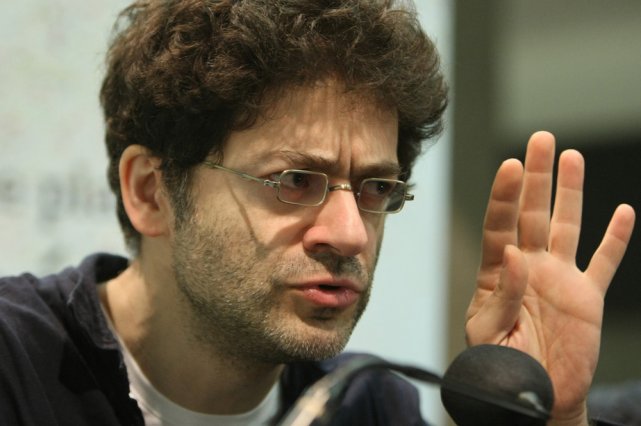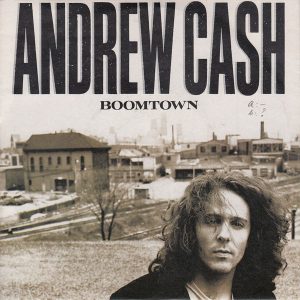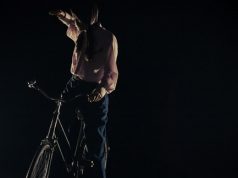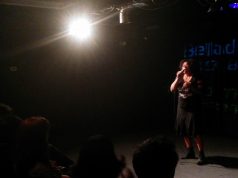
I was never more proud to be theatre artist than on the day Wajdi Mouawad produced wrote that letter to Stephen Harper during the 2008 federal election. Mouawad accused the Prime Minister of declaring war on artists during his mean spirited pre-election slash of arts funding. The best part was when he threatened the Prime Minister:
“The resistance that will begin today, and to which my letter is added, is but a first manifestation of a movement that you yourself have set in motion: an incalculable number of texts, speeches, acts, assemblies, marches, will now be making themselves heard. They will not be exhausted.”
These were galvanizing times. Remember the Department of Culture? They organized troops of artists to campaign against the Conservatives in swing ridings. Remember the Wrecking Ball in 2008? I do. In fact, when I think back through my personal history, I can trace an unbroken line between the consciousness raising momentum of that election to where I am now, employed as the legislative assistant to the NDP Opposition Critic for Aboriginal Affairs. It was when I spoke on a panel at McGill University about surviving Harper’s attacks on artists that I serendipitously met my current boss, Niki Ashton, who was then the youngest woman in Parliament. And now we are facing possibly the most critical election Canada has ever faced – and what are we, the arts community, doing about it?
The fact that my artist friends don’t show up when it comes to politics or activism doesn’t make sense to me. We’re all so passionate about politics and social justice and community well- Most of us cite at least one of those three things in our stated purposes for making our art in the first place. So when the call is put out for bodies to join in protest, attend town halls or community meetings, knock on doors or volunteer at a local campaign office for a worthy candidate, I am disheartened by how few arts workers show up.
It’s a bit of a mystery why Canadian artists don’t see themselves as exploited proletariat. They live below the poverty line. Their work contributes hugely to the economy, and even moreso to society, and they see almost nothing of that profit. Most of them have no housing security. Some have no food security. They feel they can’t afford to have children. Yet they don’t cultivate a tangible sense of solidarity with each other or with the millions of other Canadians who are also working poor. Movements are built through that kind of solidarity.
Wajdi said you would come! Where are you, with your voices and your writing and your irregular work hours and long stretches of unemployment? Come help!
Some people will reply it’s because the arts are not an election issue this time around. No one has threatened to slash the Canada Council for the Arts for a while; Heritage Canada funding seems to be flowing regularly enough (so long as your project has some propaganda value regarding the War of 1812 or Canada’s 150th Birthday) and what else do we care about?
The Canadian Arts Coalition came knocking last winter, but their asks were tame and their presence is now long forgotten in platform building season. I was present at the meeting my boss took with the CAC for their Arts Day on the Hill. It was disappointing that only arts administrators and one fundraiser came to our meeting. I wondered why they were praising the government instead of shaming us.
It is ridiculous, however, to direct anger at the Canadian Arts Coalition for not being more radical. They are volunteers and they are working with very little while balancing the needs of arts organizations that need their funding. I told Eric Coates, a member of the coalition, that I might take a swipe at the Arts Coalition in this article and he wrote to me:
“My question is, why take a swipe at it, at all? Why not take a swipe at those who complain about the lack of arts funding, but don’t take any action to address it? When we lobbied in 2013, Heritage Minister James Moore told us afterwards that our actions spared Canada Council from sustaining any cuts. We were in a position where the only thing we could realistically ask for was to spare the axe – and I believe we succeeded. I know it’s anathema to be thankful for no cuts, but it is the sober reality of life under Stephen Harper’s Conservatives.”

I am not upset at Arts Day on the Hill. I’m upset because my community, we of the trained stage presence and masterful writing skills have no collective or subversive voice. The truth is that people who are exploited and oppressed have a very hard time advocating for themselves. The reason there were few artists at the Arts Day on the Hill is because they couldn’t afford to volunteer to be there. The reason I have the resources to write this now is because I’ve escaped the poverty of a playwright’s life and have a unionized day job.
Politicians eventually answer to political movements. When we speak about what the federal government can do for artists why are we not speaking the same language of anti-poverty activists or the trade labour movement? Why don’t fine arts majors ever participate in the student movement? Our needs and interests are all the same.
Although artists have next to nothing and work like dogs they are not low class. They are the cultural class. Many are the result of privileged backgrounds and high-level educations. Most of our parents had enough money to give us the kind of childhood that supports artistic passions. However, most of us can’t forge a consistent living wage out of the work we do even when we are regularly published, produced, on stage, in a gallery or in residence. I can think of no other professional industry where that is the case, and where the labour force doesn’t consider themselves oppressed? When should artists start to self-identify as oppressed?
After Harper announced his arts cuts in 2008, he further insulted us by saying that all we do is sip champagne at galas. I know enough from my time on Parliament Hill to know that insult was not a gaffe, but a calculated move on the Prime Minister’s part. Anti-intellectual dog whistling was a cornerstone of Harper’s strategy to destroy the Liberal Party and it worked. It was a strategy that came fully to bloom in 2011 when I couldn’t knock on a single Northern BC doorstep without hearing about what an effete, Harvard educated, geek Ignatieff was. I was happy enough to sop up his votes at the time for Nathan Cullen and his cultivated folksy cadence, but I recognized that sentiment as bigotry and I knew not to let many people know that I’m a Jewish playwright from Toronto.
I think that’s why the champagne sipping comment hurt our feelings so much: poor as we are, we do know how to look good at a Gala and sip champagne over sparkling conversation. But that privilege, in my opinion, doesn’t negate the fact that paying someone 50 cents an hour to do something that society values is exploitation.
I wonder where Wajdi is now. Where are the other senior artists, few though they are, who can afford to take the time to rally against the government? It’s true that in 2008 our interventions failed at unseating Harper. But maybe Wajdi was playing a long game. Maybe he was thinking about people like me who would naively romanticize what he said eight years ago, forage out a place for themselves in a progressive political party and then quote his letter to validate her plea to her friends: I know you are poor and tired but you have voices and you are convincing and you have irregular work hours. Please come help.









